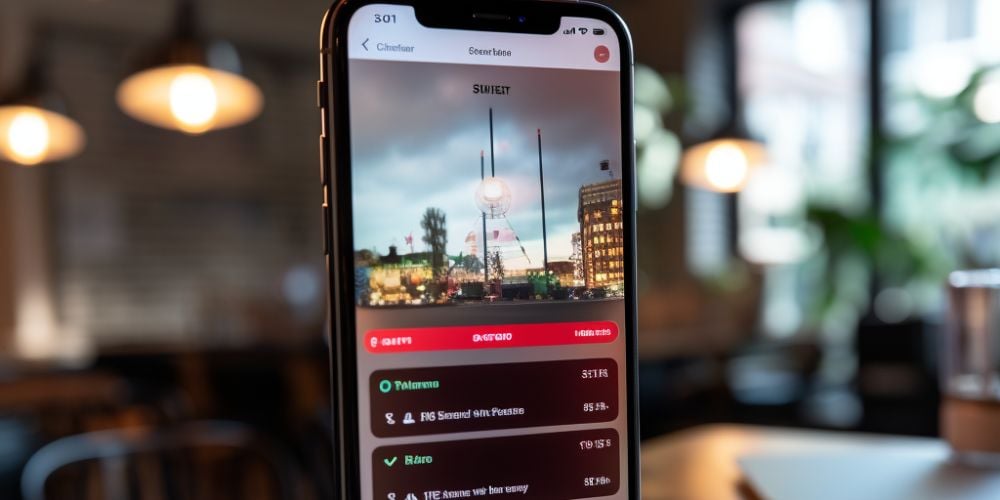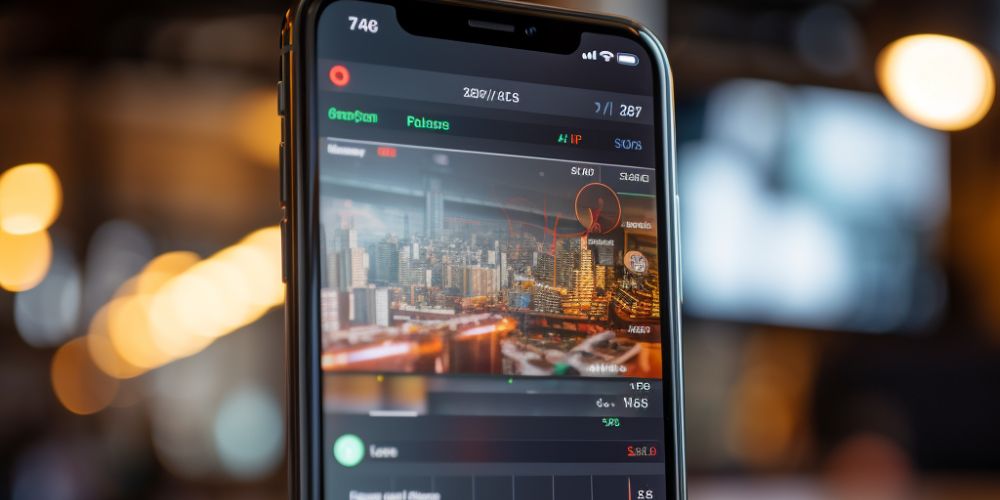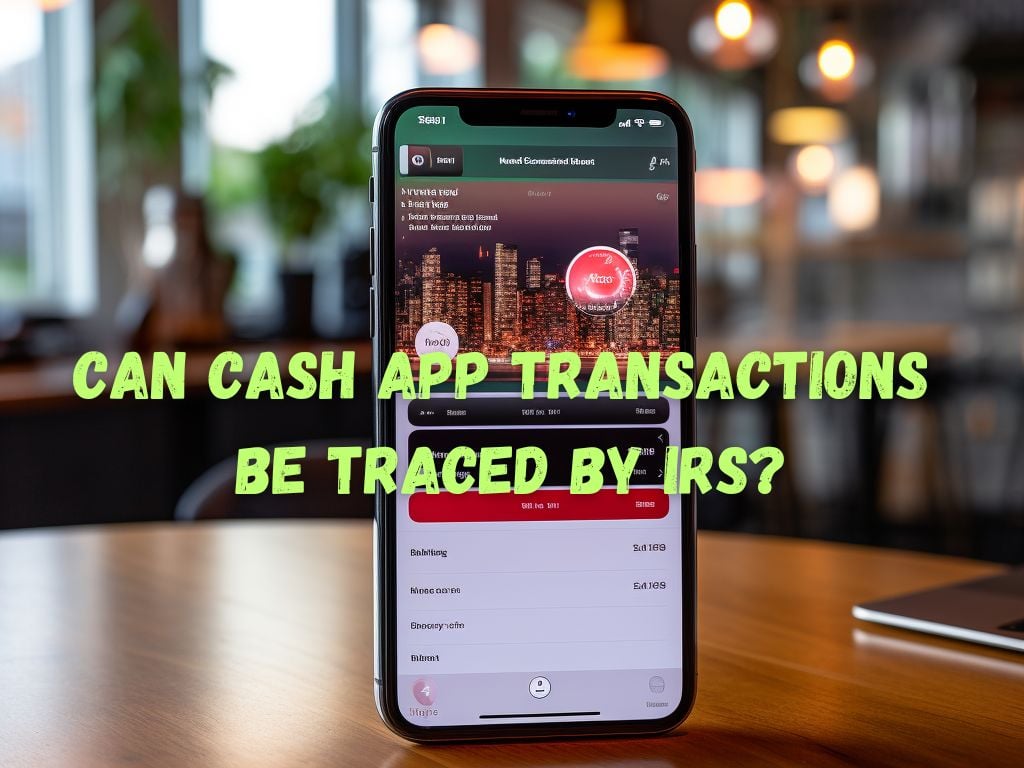In today’s digital age, cashless payment platforms have become increasingly popular due to their convenience, safety, and efficiency.
One of the most popular of these platforms is Cash App, a mobile app that enables users to send and receive money easily and quickly.
However, as with any financial transaction, there is always the question of whether these transactions can be traced by the IRS.
So, can cash app transactions be traced by IRS?
In this article, we will examine the question of whether Cash App transactions can be traced by the IRS, understand the regulations surrounding transactions, and share pro tips for users to stay compliant.
How Cash App Works
Cash App, formerly known as Square Cash, is a mobile payment service developed by Square Inc., a financial services company based in San Francisco, California.
The app provides users with the ability to send and receive money using a mobile phone, including payments for goods and services.
Once a user links their Cash App account to their bank account, debit card, or credit card, they can instantly send and receive money through the app.

Cash App Transactions and Privacy
Cash App is designed to be a secure and private platform for users. The app was created with state-of-the-art encryption technology to protect user data and transactions.
Cash App users can trust that their transactions are secure and private, and that their information will not be sold or shared with third parties without their consent.
The Role of the IRS in Financial Transactions
The Internal Revenue Service (IRS) is a government agency that is responsible for collecting federal taxes in the United States.
Part of the agency’s role is to monitor and regulate financial activities such as bank transactions and credit card payments to ensure compliance with tax laws.
The IRS has the authority to investigate and enforce compliance if they suspect a taxpayer has failed to report all their income or engaged in other tax-related violations.
Can cash app transactions be traced by IRS? The Truth
Under IRS regulations, taxpayers are required to report all income earned during a tax year, including any income earned through digital payment platforms like Cash App.
In order to help monitor and regulate financial activities, the IRS requires payment processors like Cash App to file Form 1099-K, a tax document that reports the total amount of payments received by a user through the service in a given tax year.
According to IRS regulations, Cash App must file a Form 1099-K for any user who meets the following criteria:
Received more than $20,000 in gross payments;
Received more than 200 transactions during a tax year.
In general, any amounts received from Cash App should be accounted for as income and reported on a taxpayer’s tax return. This includes any income related to business operations, such as sales revenues or consulting fees.
Cash App’s Compliance with IRS Regulations
Cash App is required to comply with IRS reporting requirements and file Form 1099-K for any qualifying user.
However, the app is also committed to protecting user privacy and data protection, and only provides the IRS with necessary and relevant information.
According to Cash App’s website, “We may share your personal information in response to a lawful subpoena or court order.
If Square receives a subpoena or court order that we are legally required to comply with, we will make a reasonable effort to notify you unless we are legally prohibited from doing so.”
This means that if the IRS were to issue a subpoena or court order to Cash App, the app would be required to comply with the request for information.
However, Cash App would still make every effort to notify the user and protect their privacy to the extent possible.
Pro Tips for Cash App Users
In order to stay compliant with IRS regulations and protect privacy, cash App users should follow these pro tips:
Keep records of all Cash App transactions and related income;
Accurately report all income earned through Cash App on tax returns;
Maintain accurate business records and consult with a tax professional if necessary.

Frequently Asked Questions (FAQs)
To provide a more comprehensive understanding of the regulations surrounding Cash App transactions and IRS reporting requirements, we will examine some frequently asked questions:
Can the IRS track individual Cash App transactions?
Under normal circumstances, the IRS does not track individual Cash App transactions. However, if they suspect a user of tax evasion or other financial crimes, and have a lawful subpoena or court order, they could potentially examine transaction history.
Are Cash App Bitcoin transactions also traceable by the IRS?
Bitcoin transactions on Cash App are currently reported on Form 1099-B, rather than Form 1099-K. This means that Bitcoin transactions are subject to different reporting requirements, but the IRS still has the authority to investigate and enforce compliance as necessary.
Can the IRS access Cash App transaction history without a user’s consent?
No, the IRS does not have the authority to access Cash App transaction history without a lawful subpoena or court order. Cash App is legally required to protect user privacy and can only share information in response to a lawful request.
How can Cash App users ensure compliance with IRS regulations?
Cash App users can ensure compliance with IRS regulations by keeping proper records of transactions, accurately reporting all income earned, and consulting with a tax professional for advice on reporting Cash App transactions.
Conclusion
Cash App is a popular and convenient payment platform that offers users a range of features for sending and receiving money.
While user privacy and protection are top priorities for Cash App, it is still subject to IRS reporting requirements and regulations.
Cash App users should be aware of the reporting requirements and ensure compliance to avoid potential penalties or fines.
By following the advice and pro tips described in this article, Cash App users can protect their privacy while also staying compliant with IRS regulations.


 Tags:
Tags:










